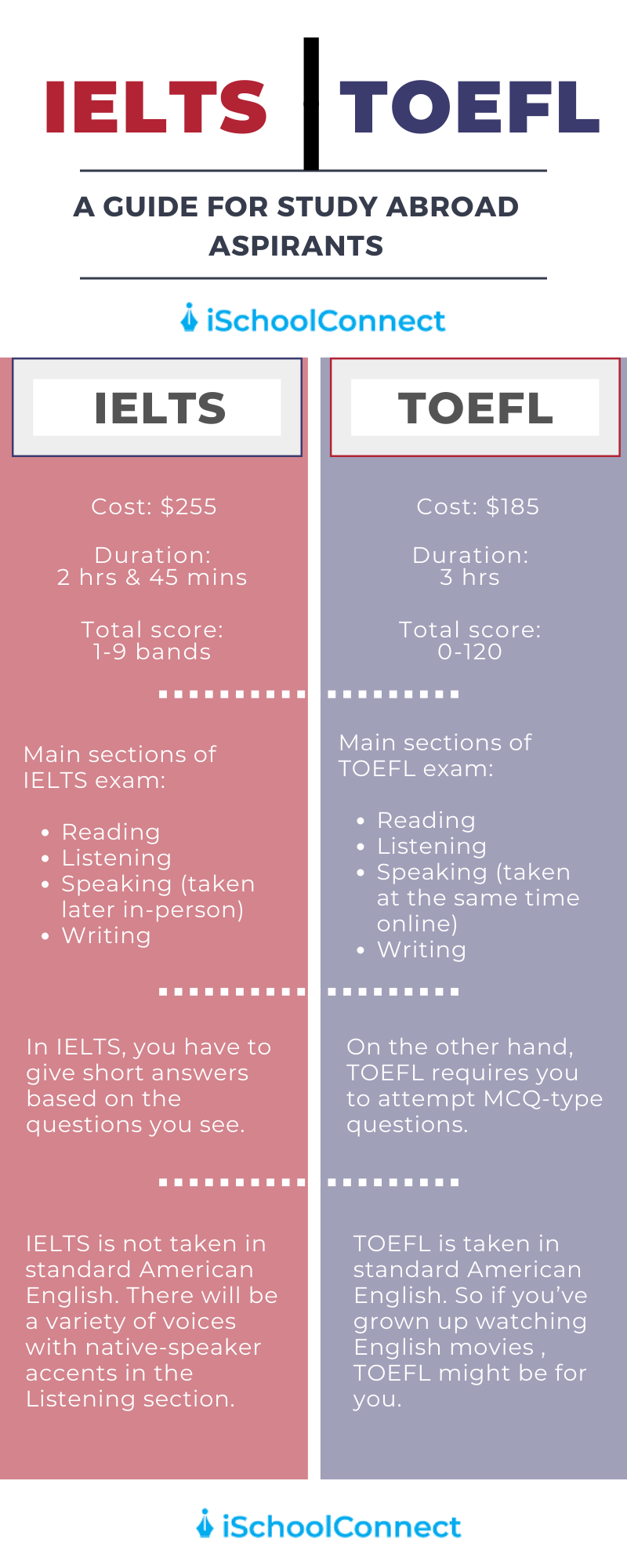When it comes to English language proficiency tests, two of the most popular options are the International English Language Testing System (IELTS) and the Test of English as a Foreign Language (TOEFL). Both tests are widely accepted by universities and institutions around the world, but there are some key differences between them.
IELTS is a test developed by the British Council, IDP: IELTS Australia, and Cambridge Assessment English, while TOEFL is administered by Educational Testing Service (ETS). Both tests assess a person’s ability to understand, speak, read, and write in English, but they have different formats and scoring systems.
Differences between IELTS and TOEFL
One of the main differences between IELTS and TOEFL is the format of the speaking section. In the IELTS test, candidates have a face-to-face interview with an examiner, while in the TOEFL test, the speaking section is recorded and evaluated by multiple raters. This can impact the test taker’s experience and comfort level during the speaking test.
Another difference is the scoring system. IELTS uses a band score system ranging from 0 to 9, with half-band increments, while TOEFL uses a score scale from 0 to 120. The scoring criteria and weightage of different sections also vary between the two tests, so it’s important for test takers to understand the scoring system of the test they are taking.
Furthermore, the content and tasks in the reading and listening sections of IELTS and TOEFL differ. IELTS reading passages are taken from books, magazines, newspapers, and online resources, while TOEFL reading passages are academic in nature. Similarly, the listening tasks in IELTS are based on everyday conversations and academic lectures, while TOEFL listening tasks focus more on academic content.
Lastly, the writing section in IELTS and TOEFL also have some differences. In IELTS, candidates are required to complete two writing tasks – a task 1 that requires a report or description and a task 2 that requires an essay. In TOEFL, there is only one writing task that requires the test taker to write an essay based on a given prompt.
In conclusion, while both IELTS and TOEFL are widely accepted English language proficiency tests, they have distinct differences in terms of format, scoring, content, and tasks. It’s important for test takers to choose the test that best suits their needs and preferences, based on their strengths and weaknesses in English language skills.
